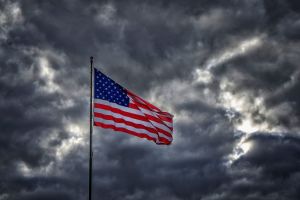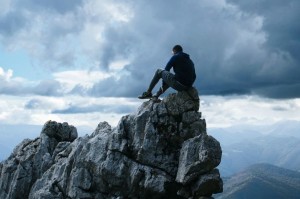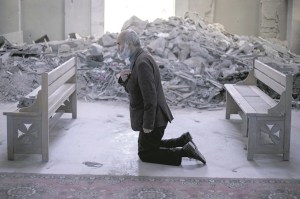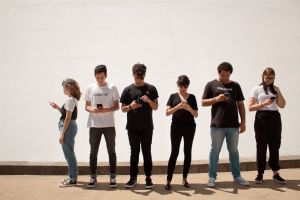Will COVID-19 increase support for religious freedom?
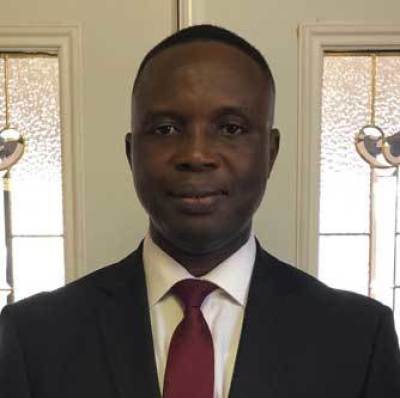
The Christian Season of Lent is coming to an end – and it’s certainly one for the books. With the spread of the COVID-19 virus accelerating in the U.S. and around the world, normal routines have come to a halt, including most church services. Fortunately, this unprecedented situation has not stopped Christians from preparing for the glory of Easter; instead, it’s drawn others to pray. Even if that trend is short-lived, I hope those that find themselves turning to prayer in this time of crisis walk away with a newfound appreciation for the importance of religious freedom.
The Pew Research Center released a new report that shows the pandemic has changed the religious habits of Americans, with people who seldom or never pray and even people who say they do not belong to any religion at all, now turning to prayer. In all, more than half of all U.S. adults have prayed for an end to the virus’ spread. We’re actually very fortunate in the United States, to have the freedom to make this decision, which probably seems small to some.
Here in the United States, religion is recognized as a basic human right that everyone, everywhere, should have at all times. But that isn’t a globally shared belief and in fact, there are places in this world where Christians risk everything to follow Jesus Christ. This remains the case during times of crisis.
According to the latest reports, Christian persecution reached unprecedented levels at the end of 2019, with more than 260 million Christians around the globe experiencing “high levels” of persecution. That’s one in eight believers worldwide – they are men, women and children, moms, dads, sons and daughters.
Some parts of the world are more dangerous for Christians than others. Nigeria is one of those places.
Right now, Boko Haram, widely known as one of the deadliest terrorist groups in the world, is actively committing a genocide against Nigerian Christians and committing crimes against humanity on the wider population. Since 2011, Boko Haram has taken more than 37,000 innocent lives, the vast majority of them women and children. Entire communities, villages, and towns have been devastated. Millions more have been kidnapped or displaced from their homes following persecution.
Fulani militant herdsmen are also waging war on Christian farmers in the middle regions of the nation. Land scarcity and religious intolerance have fueled unspeakable acts of terror against Christians living on desirable lands. Since 2011, 6,000 Christians have been killed by Fulani militants and more than 1,000 churches torched.
President Muhammadu Buhari has done little to stop the violence. In fact, attacks have become more aggressive and deadly under his administration. Interestingly, it’s been rumored that President Buhari is sick and was recently evacuated to the United Kingdom for treatment. If true – and if something happens to him – uncertainty will send the Nigerian people into a further state of disarray.
Nigeria has been sitting on this powder keg for a while now, with civil unrest building. Western nations have a vested interest in making sure that things get better from here.
Nigeria is an emerging African superpower. It’s the largest oil producer in Africa with proven reserves of 37 million barrels (10th largest in the world) and it’s also the country with the world’s largest mixes of Muslim and Christian population. The current situation in Nigeria threatens to undermine its stability.
Without western intervention, I fear that things will go from bad to worse in Nigeria. When that happens, the consequences won’t be confined to Nigeria’s borders. Instead, the results could include economic, security, and cultural upheaval around the world.
COVID-19 has united the global community against a common enemy. With the best and brightest minds coming together, we will tackle this. I believe we can work together to protect religious freedom and tackle the issue of Christian persecution in Nigeria as well. We need to send a Special Envoy to Nigeria and the Lake Chad region, and soon.
Together, we can stop this crisis. And we must. Nigerian lives, and the balance of global peace and security depend on it.
Stephen S. Enada is Executive President of the International Committee on Nigeria (ICON), which he co-founded in 2017. ICON exists because injustice and a lack of inclusive governance that falls along ethnoreligious fault lines threatens the stability of Africa’s most important nation. ICON works in both the U.S. and in Nigeria to raise awareness and build collaborative partnerships to address both the religious liberty at home and violations of religious freedom abroad.
















